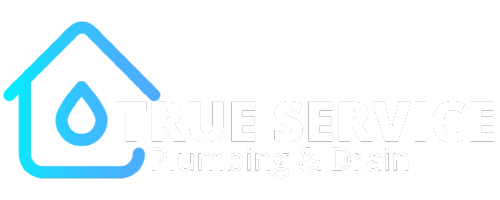Choosing the right type of pipes for plumbing is crucial for a durable and efficient home plumbing system.
The wrong pipe material can lead to frequent leaks, water pressure issues, and costly repairs.
Whether you are renovating your home, replacing old plumbing, or building a new property, understanding your options will save you time, money, and headaches in the long run.
This guide will break down the most common plumbing pipes, their best applications, pros and cons, and essential factors to consider when selecting the best option for your home.
What Are the Different Types of Pipes Used in Plumbing?
Homeowners have a variety of plumbing pipe materials to choose from.
Each serves a specific purpose, and some work better in certain situations than others.
Below are the most commonly used options:
Copper Pipes
Copper pipes have been a staple in home plumbing for decades. Known for their durability, they are commonly used for water supply lines.
Pros:
- Long lifespan (50+ years)
- Heat-resistant and fireproof
- Corrosion-resistant
- Safe for drinking water (doesn’t leach chemicals)
Cons:
- Expensive compared to other materials
- Requires soldering for installation
- Rigid and less flexible than modern alternatives
Best for:
- Hot and cold water supply lines
- Homes requiring high water pressure
PEX Pipes
PEX (cross-linked polyethylene) is a flexible plastic pipe that has gained popularity for home plumbing due to its ease of installation and affordability.
Pros:
- Extremely flexible and easy to install
- Resistant to freezing and bursting
- Cost-effective compared to copper
- Fewer joints, reducing leak risks
Cons:
- Cannot be used outdoors (UV-sensitive)
- May not be allowed in some local building codes
Best for:
- Indoor water supply lines
- DIY plumbing projects
- Areas prone to freezing temperatures
PVC Pipes
PVC (polyvinyl chloride) is widely used for drainage systems, vent pipes, and sometimes cold water lines.
Pros:
- Lightweight and easy to install
- Corrosion-resistant
- Inexpensive
Cons:
- Not suitable for hot water lines (warps under heat)
- Can become brittle over time
Best for:
- Drain, waste, and vent (DWV) systems
- Outdoor irrigation
CPVC Pipes
CPVC (chlorinated polyvinyl chloride) is similar to PVC but can handle higher temperatures, making it more versatile.
Pros:
- Suitable for both hot and cold water
- Affordable and lightweight
- More heat-resistant than PVC
Cons:
- More expensive than PVC
- Brittle in extreme cold
Best for:
- Hot water supply lines
- Homes needing a cost-effective alternative to copper
Galvanized Steel Pipes
Galvanized pipes were common in older homes but are rarely used today due to corrosion concerns.
Pros:
- Strong and durable
- Suitable for high water pressure
Cons:
- Prone to rust and corrosion
- Reduces water flow over time due to internal buildup
Best for:
- Older homes (should be replaced with modern options)
- Water supply lines (historically)
Cast Iron Pipes
Cast iron pipes were once popular for drain and sewer lines due to their strength and noise-reduction qualities.
Pros:
- Extremely durable
- Reduces noise from water flow
Cons:
- Heavy and difficult to install
- Susceptible to rust over time
Best for:
- Drain and sewer systems
- Large commercial or multi-family buildings
How to Choose the Right Type of Pipes for Your Plumbing System
Selecting the best plumbing pipe for your home depends on several factors:
- Water Pressure Needs: Copper is great for high-pressure systems, while PEX works well in flexible setups.
- Temperature Resistance: CPVC and copper handle hot water better than PVC.
- Budget Considerations: PEX and PVC are budget-friendly, while copper is more expensive.
- Indoor vs. Outdoor Use: PVC and PEX should not be exposed to direct sunlight, whereas copper and CPVC can be used outdoors.
- Local Building Codes: Always check regulations to ensure compliance with plumbing standards.
When Should You Replace Your Plumbing Pipes?
Pipes don’t last forever. Here are signs it may be time to replace them:
- Discolored water: Rusty or brown water indicates corroded pipes.
- Frequent leaks: Persistent plumbing leaks may signal deteriorating pipes.
- Low water pressure: Buildup inside pipes can restrict flow.
- Visible corrosion: If pipes show signs of rust or scaling, they need attention.
Average lifespan of common pipe materials:
- Copper: 50+ years
- PEX: 25-50 years
- PVC: 25-40 years
- Galvanized Steel: 20-50 years (but often replaced sooner)
- Cast Iron: 50-100 years
Where to Buy Quality Plumbing Pipes and Materials
To ensure durability and performance, purchase plumbing pipes from reputable sources such as:
- Local hardware stores (Home Depot, Lowe’s, Rona)
- Plumbing supply wholesalers (often better for bulk purchases)
- Online retailers (ensure materials meet industry standards)
Always look for pipes that comply with plumbing codes and come from trusted manufacturers.
Who Should You Consult for Plumbing Pipe Installation or Replacement?
While some homeowners opt for DIY plumbing, hiring a professional plumber ensures the job is done right.
Improper pipe selection or installation can lead to costly issues down the road. A licensed plumber will:
- Assess your plumbing needs and recommend the best pipe type
- Ensure compliance with local plumbing codes
- Properly install and seal pipes to prevent leaks
- Save you time, money, and frustration
Final Thoughts
Selecting the right type of pipes for plumbing is essential for a long-lasting, efficient system.
Whether you need durable copper pipes, flexible PEX, or cost-effective PVC, understanding their strengths and weaknesses helps you make informed decisions.
If you’re unsure which plumbing pipes are best for your home, or if you need professional installation, True Service Plumbing is here to help.
Our experts in Toronto and the GTA provide top-notch residential and commercial plumbing services to ensure your pipes function flawlessly.
Plumbing Services for Pipe Installation and Replacement with True Service Plumbing
When it comes to plumbing pipe installation and replacement in Toronto and the GTA, True Service Plumbing is the trusted choice for homeowners and businesses.
Our licensed professionals ensure expert guidance and high-quality service for all your plumbing needs.
Need new pipes or a system upgrade? We provide tailored solutions for durability and efficiency.
Don’t let outdated or faulty plumbing disrupt your home. Contact True Service Plumbing today for reliable, expert plumbing solutions!


